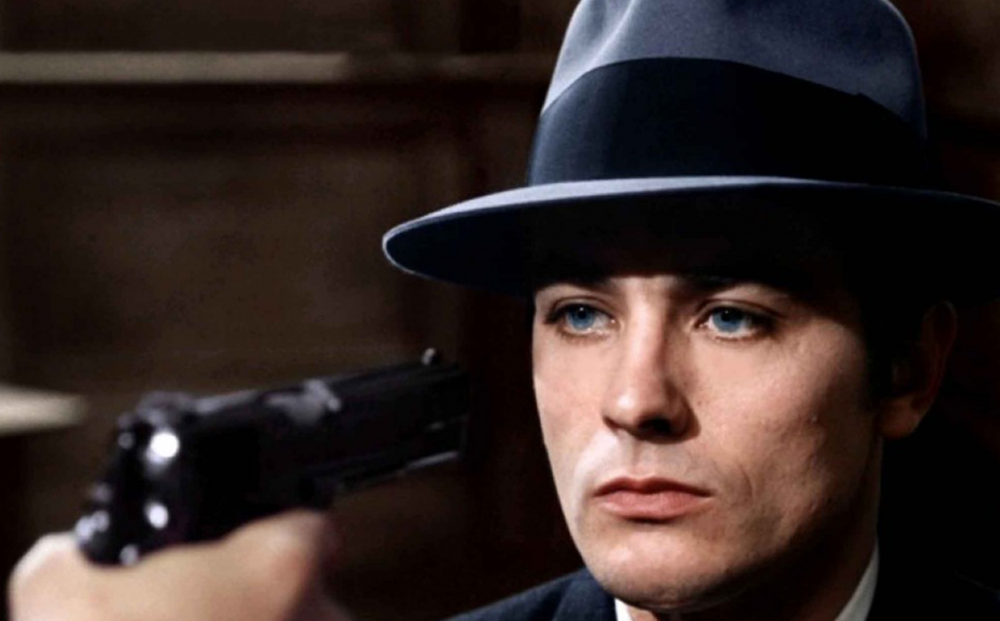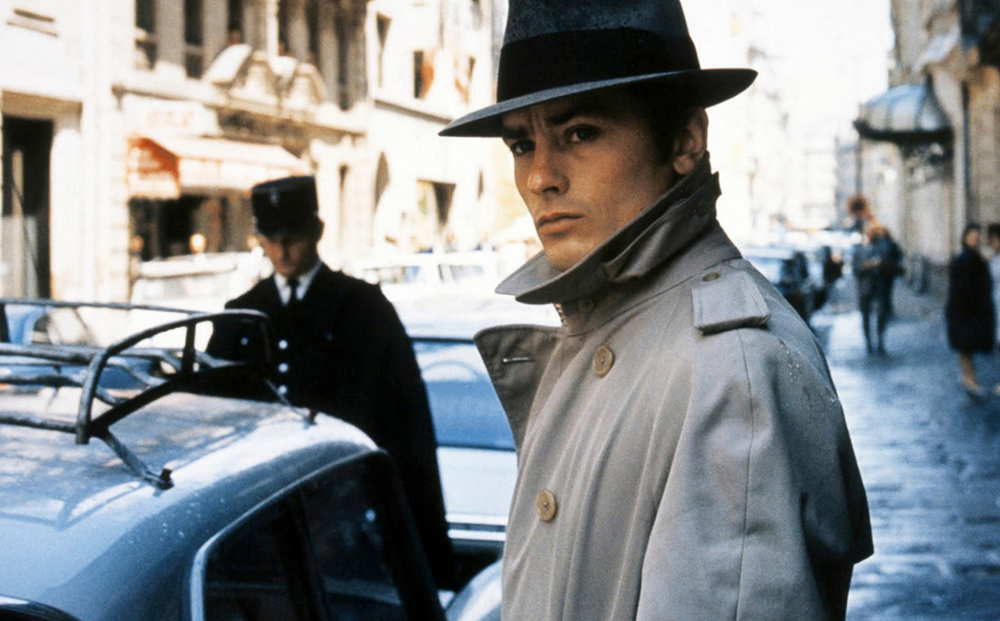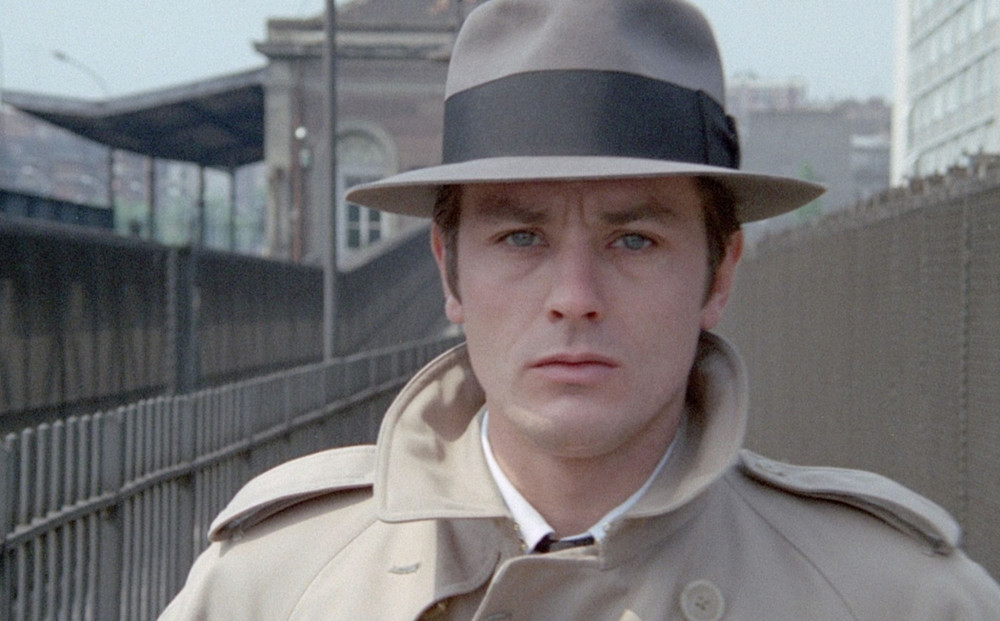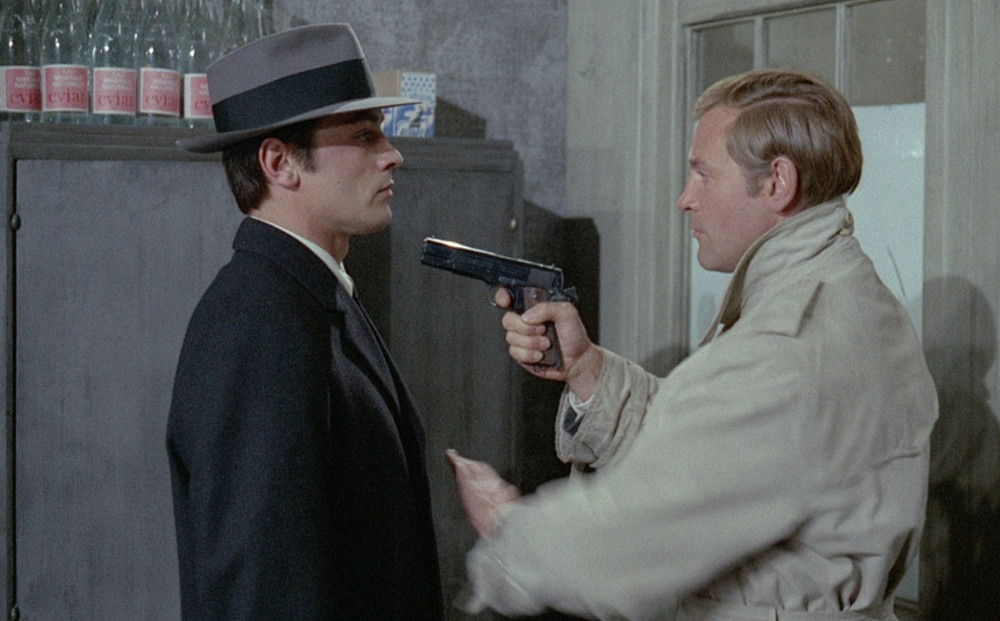Jean-Pierre Melville's
LE SAMOURAÏ
MUST END THURSDAY, JUNE 6
NEW 4K RESTORATION
1967, France
Directed by Jean-Pierre Melville
Starring Alain Delon, François Périer, Nathalie Delon
Cinematography by Henri Decaë
In French with English subtitles
Approx. 105 min. DCP.
Dedicated professional killer Delon lies fully-clothed in his monochromed threadbare apartment, then goes off to a day at the office: stealing a car, killing a man in a nightclub, setting up an ironclad alibi, and outsmarting the cops. Two problems: his anonymous employers don't trust him and he's left one witness behind, jazz pianist Cathy Rosier. Described by Melville as "the analysis of a schizophrenic by a paranoiac,” LE SAMOURAÏ is the pinnacle of the French policier, blacker than noir in its silence, isolation, and stylization, but unrelenting in its suspense. Its masterly set-pieces — two highly dissimilar car thefts, the police line-up, shaking the cops on the Métro, the hit itself — have been quarried by other filmmakers for years.
Restored in 4K by Pathé and The Criterion Collection at L’Immagine Ritrovata, from the original 35mm negative.
Presented with support from the George Fasel Memorial Fund for Classic French Cinema
A JANUS FILMS RELEASE
Reviews
“THE EPITOME OF FRENCH COOL.”
– Time Out
“A MASTERPIECE… DELON IN THE ROLE OF A LIFETIME… REVOLUTIONIZED THE ACTION GENRE.”
– Bilge Ebiri, New York Magazine
"Like a painter or a musician, a filmmaker can suggest complete mastery with just a few strokes. Melville involves us in the spell of LE SAMOURAÏ before a word is spoken.”
– Roger Ebert
“In the opening shot, Jef is laid out on a bed, at one side of the frame, like the dreaming St. Ursula in Carpaccio’s famous painting from 1495. The only difference is that the blessed saint is not enjoying a slow Gitane. Eventually, Jef rises from his restful pose to don his coat and gray hat, standing before the mirror and running his fingers around the front of the brim to insure that he looks sharp. This is not vanity; the sharpness is like a blade—a guarantee that his presence, and his skills, will slice into his environment at the most acute and most profitable angle.”
– Anthony Lane, The New Yorker
“The closest thing to a perfect movie that I have ever seen.”
– John Woo




